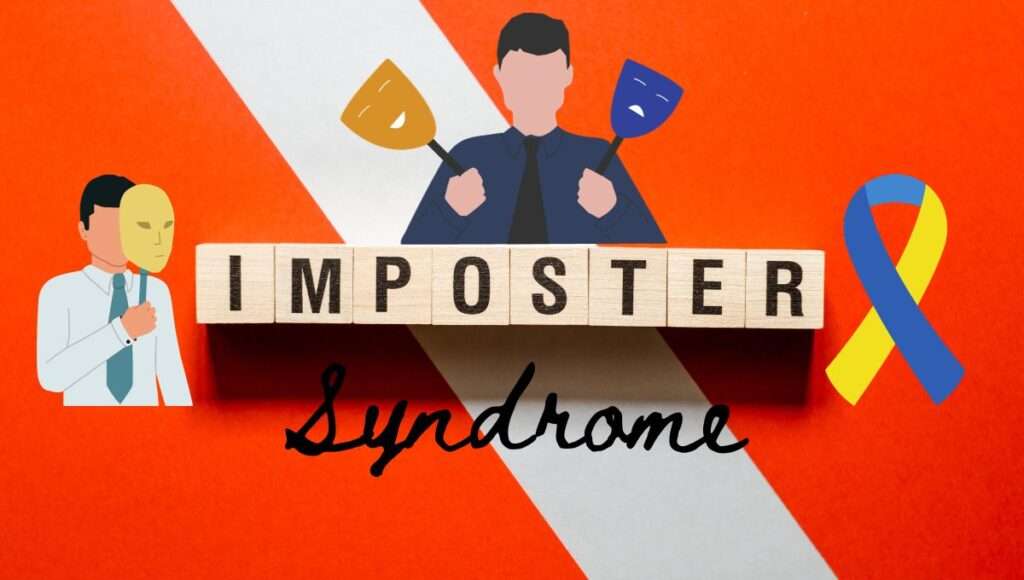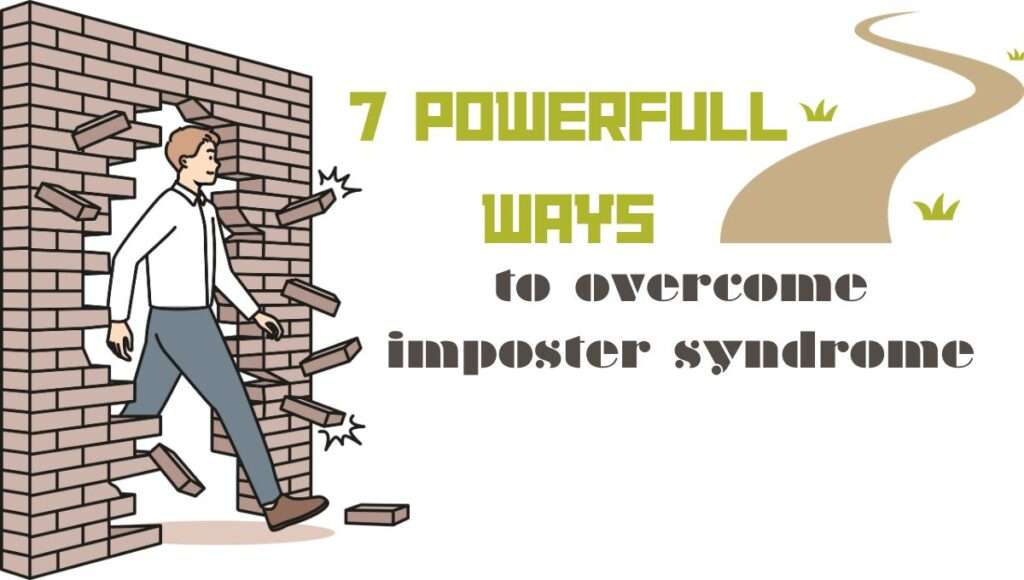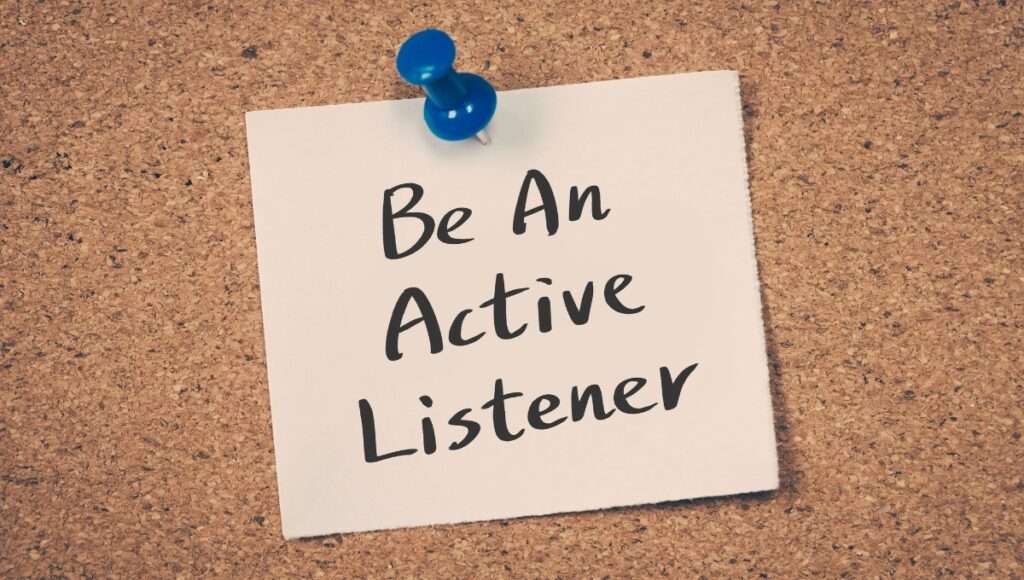Ultimate guide to Imposter Syndrome: 10 important facts you need to know & 7 Powerful Ways to Overcome it.

Hey there, you overachieving underachiever! 🌟, you brilliant fraud, yes you! 🌟 Ever felt like you’re just winging it through life, waiting for someone to unmask you as the imposter you secretly think you are? Well, buckle up, because we’re about to drop some truth bombs that’ll make your head spin. 🤯 In this blog, we’re going to explore 10 facts about Imposter syndrome & seven powerful ways to kick it to the curb. So, buckle up, because this is going to be a transformative ride! 🚗
What is Imposter Syndrome?
First off, let’s get the basics down. Imposter Syndrome is that gnawing feeling that you’re not as competent as others perceive you to be. 🤔 It’s like wearing a mask of competence while fearing that someone will rip it off any second. Sounds familiar, right?
Psychologically speaking, this syndrome is not a formal diagnosis but a behavioral experience that many people go through. Studies show that about 70% of people have felt like imposters at some point in their lives. Yep, you read that right—70%! 😲
The Impact of Imposter Syndrome
Now, you might be thinking, “So what? A little self-doubt never hurt anyone.” Well, think again! Imposter Syndrome isn’t just about doubting yourself; it’s a full-blown confidence killer. 😵 It can lead to anxiety, depression, and even career stagnation. Imagine missing out on promotions or new opportunities just because you didn’t think you were “good enough.” Tragic, isn’t it?
10 Shocking Facts About Imposter Syndrome You Need to Know

Here are 10 shocking facts about Imposter Syndrome that you absolutely need to know. Spoiler alert: you’re not alone, and it’s more twisted than you think!
Fact #1: The Prevalence of Imposter Syndrome
Let’s kick things off with a jaw-dropper: about 70% of people have experienced Imposter Syndrome at some point in their lives. That’s right, seven out of ten! 🤯 You could be in a room with ten people, and statistically, seven of them have felt like a fraud just like you. So, if you’re thinking you’re the lone imposter in a sea of confident people, think again!
Fact #2: It’s Not Officially a Psychological Disorder
Here’s the kicker: despite wreaking havoc on your mental well-being, Imposter Syndrome isn’t even recognized as an official psychological disorder. 🤷♀️ That’s like saying, “Hey, you’re suffering, but not enough for us to make it official.” Talk about adding insult to injury!
Fact #3: High Achievers Are More Susceptible
Irony alert! 🚨 The people who are most likely to experience Imposter Syndrome are often the high achievers. You know, the ones who seem to have it all together. So, if you’re a go-getter who still feels like a fake, congratulations, you’re a walking paradox!
Fact #4: It Affects Both Genders
Hold onto your hats, folks, because Imposter Syndrome doesn’t discriminate. 🎩 While it’s often portrayed as a “women’s issue,” the truth is that men are just as susceptible. The difference? Men are less likely to talk about it, thanks to societal norms that equate vulnerability with weakness. So, the next time you think Imposter Syndrome is a gendered issue, remember: it’s an equal-opportunity confidence crusher.
Fact #5: Cultural Factors Play a Role
Ready for another curveball? 🤔 Imposter Syndrome isn’t just an individual issue; it’s a cultural one too. Different cultures have different attitudes towards success, failure, and self-worth, all of which can feed into Imposter Syndrome. For instance, in cultures that place a high value on humility, the fear of appearing arrogant can exacerbate feelings of being an imposter.
Fact #6: It Can Lead to Burnout
If you thought Imposter Syndrome was just a mental quirk, think again. 🚨 This sneaky syndrome can lead to something far more serious: burnout. The constant stress of feeling like a fraud can take a toll on your mental and physical health, leading to exhaustion, cynicism, and reduced performance. It’s like a never-ending cycle of doom and gloom, all because you can’t shake the feeling that you’re not “good enough.”
Fact #7: There Are Different Types
One size doesn’t fit all when it comes to Imposter Syndrome. 🎭 Researchers have identified five subtypes: the Perfectionist, the Superwoman/man, the Natural Genius, the Soloist, and the Expert. Each comes with its own unique set of challenges and triggers. So, if you thought Imposter Syndrome was a one-trick pony, you’re in for a surprise!
Fact #8: It Can Be a Lifelong Struggle
If you’re waiting for the day when you’ll “outgrow” Imposter Syndrome, I hate to break it to you, but you might be waiting a while. 🕰️ This isn’t just a phase or a “young person’s problem.” People of all ages report feeling like imposters, from fresh grads entering the workforce to seasoned professionals eyeing retirement. It’s like the gift that keeps on giving, but nobody asks for it.
Fact #9: It’s Linked to Mental Health Issues
As if feeling like a fraud wasn’t bad enough, Imposter Syndrome often comes with some unwelcome friends: anxiety and depression. 🌧️ The constant self-doubt and fear of exposure can take a toll on your mental health, leading to a host of other issues. It’s a vicious cycle: you feel like an imposter, which makes you anxious, which makes you feel more like an imposter. Rinse and repeat.
Fact #10: There’s No One-Size-Fits-All Solution
Here’s the final shocker: there’s no magic pill for Imposter Syndrome. 🎩✨ Overcoming it is a complex, individualized process that often involves a combination of self-awareness, professional help, and lifestyle changes. What works for one person might not work for another, so it’s all about finding your own path to self-acceptance.
7 Powerful Ways to Overcome Imposter Syndrome

Self-Awareness (Or Lack Thereof)
So, you’ve identified that you have Imposter Syndrome. Congrats, you’re self-aware! 🎉 Or are you? The first “powerful” way to overcome this delightful syndrome is by being aware of your thoughts. Groundbreaking, I know. 🙄 Every time you have that nagging thought that you’re going to be “found out,” write it down. Yes, in an actual journal, not just in the Notes app where you store your grocery lists. Challenge those thoughts like you’re a lawyer in a courtroom drama. “Is this thought factual, or is it just another episode of ‘The Fake Me’?”
Positive Affirmations (Because You’re Worth It, Maybe)
Ah, positive affirmations, the kale smoothies of the mental health world. 🥬 But before you dismiss them as just another wellness fad, let’s dig into the science. Neuroplasticity, the brain’s ability to reorganize itself, is a real thing. When you feed your brain positive affirmations, you’re essentially training it to form new, healthier neural pathways.
So how do you do it? First, identify the negative self-talk that’s contributing to your Imposter Syndrome. Phrases like “I can’t do this” or “I’m not good enough” are your enemies here. Now, flip those phrases into positive affirmations: “I am capable” or “I am deserving of success.” Write them down, say them out loud, or even sing them in the shower. The key is repetition. The more you repeat these affirmations, the more ingrained they become in your thought patterns. It’s like teaching an old dog new tricks, except the dog is your brain and the trick is self-love. 🐶❤️
Seek Professional Help (No, Not That Kind)
If your Imposter Syndrome is starting to feel like a full-time job, it might be time to bring in a professional. 🤔 Therapists and psychologists use evidence-based strategies like Cognitive Behavioral Therapy (CBT) to help you identify and challenge your imposter thoughts. They can provide you with tailored coping mechanisms that go beyond generic advice. Plus, they offer a safe space to explore your insecurities without judgment. Think of it as a gym for your mental health, where the therapist is your personal trainer guiding you through emotional workouts. 🏋️♀️
Build a Support Network (Or Just Buy Some Plants)
Going solo might work for Han Solo, but fighting Imposter Syndrome requires a team effort. 🌟 A strong support network acts as both a sounding board and a cheering squad. Start by identifying people in your life who are positive influences. These could be friends, family, or even colleagues. Open up to them about your experience with Imposter Syndrome. You’d be surprised how many people can relate and offer valuable insights. If opening up to humans feels too daunting, start with plants or pets. They offer unconditional love and are great listeners. Plus, taking care of something else can boost your self-esteem and give you a sense of accomplishment. 🌱🐾
Set Realistic Goals (And Maybe Achieve Them)
Setting goals can be a double-edged sword. Aim too high, and you’re setting yourself up for failure and more Imposter Syndrome. Aim too low, and you’re not challenging yourself enough. 🎯 The trick is to find the Goldilocks zone of goal-setting: not too hard, not too easy, but just right. Start with small, achievable goals like completing a project or even just getting out of bed on time. Celebrate these small wins; they’re stepping stones to bigger achievements. Each small victory is a blow to your Imposter Syndrome, proving that you are capable and competent. 🏆
Celebrate Small Wins (Because You’re Not Winning Oscars Yet)
Let’s talk about celebrating small wins, shall we? In a world obsessed with grand achievements—think Nobel Prizes, Olympic medals, and viral TikToks—it’s easy to overlook the small stuff. 🏅 But here’s the kicker: those small wins add up. Each one is a building block, stacking up to create the skyscraper of your self-esteem.
So, what counts as a small win? It could be anything from finishing a project ahead of schedule to successfully making a soufflé without it collapsing. 🍮 The point is to recognize these moments and give yourself a pat on the back. Why? Each small win chips away at your Imposter Syndrome, proving to you that you’re not a fraud; you’re just a human being who’s capable of success, just like anyone else.
Keep Learning (Because Nobody Knows It All)
Ah, the pursuit of knowledge—the lifelong journey that keeps on giving. 📚 You see, Imposter Syndrome thrives on ignorance, or at least the perception of it. The more you know, the less room there is for self-doubt. So, how do you go about this never-ending quest for knowledge?
First, identify the gaps in your skills or understanding that fuel your Imposter Syndrome. Is it a lack of technical skills? A gap in industry knowledge? Once you’ve pinpointed these areas, take proactive steps to fill them. This could mean taking online courses, attending workshops, or simply reading up on the subject. The goal isn’t to become an overnight expert but to build a solid foundation that silences the imposter’s thoughts.
Conclusion: You’ve Got This (No, Really, You Do)
So there you have it, folks—ten shocking facts about Imposter Syndrome & 🥾seven powerful ways to kick it to the curb. 🥾. From its surprising prevalence to its lifelong grip, each fact sheds new light on this complex issue. But remember, knowledge is power. The more you understand about Imposter Syndrome, the better equipped you’ll be to kick its butt. From the simple act of self-awareness to the ongoing journey of lifelong learning, each step brings you closer to shedding that imposter skin and embracing your true, fabulous self. 🌟
Before you go off to ponder your existence and question whether you’re an imposter in your own life, let’s make a pact. 🤝 If you found this blog post enlightening, share it with someone who needs to hear it. Heck, share it even if you didn’t find it enlightening—maybe they will! And if you’ve got your own shocking facts or experiences with Imposter Syndrome, drop them in the comments below. Let’s make this a judgment-free zone where we can all feel like imposters together. 🙌

FAQs
Can Imposter Syndrome affect my physical health?
Absolutely. While Imposter Syndrome primarily impacts your mental health, the stress and anxiety it causes can manifest physically. Think sleepless nights, headaches, and even digestive issues. So yes, your mind can mess with your body. 🤯
Is Imposter Syndrome a sign of low self-esteem?
Not necessarily. Many high-achieving individuals suffer from Imposter Syndrome. It’s less about low self-esteem and more about the fear of being exposed as a fraud, even when you’re competent. 🤷♀️
Can I ever completely get rid of Imposter Syndrome?
The goal isn’t to eliminate it but to manage it. Think of Imposter Syndrome as a pesky neighbor. You might not be able to move away, but you can learn to live next door without letting them ruin your life. 🏡
Do men experience Imposter Syndrome as much as women?
Imposter Syndrome doesn’t discriminate. Both men and women experience it, although societal pressures and expectations can make it manifest differently across genders. 🚻
Are there different types of Imposter Syndrome?
You bet! Researchers have identified five subtypes: the Perfectionist, the Superwoman/man, the Natural Genius, the Soloist, and the Expert. Each comes with its own set of challenges and triggers. 🎭
Can children experience Imposter Syndrome?
You bet! Imposter Syndrome isn’t just an adult problem; it can start as early as childhood, especially in high-achieving kids. So yes, even your 10-year-old prodigy can feel like a fraud. 🧒
Is Imposter Syndrome related to upbringing?
Oh, you betcha! Parenting styles, especially those that put a lot of emphasis on achievement, can sow the seeds of Imposter Syndrome. So, thanks, Mom and Dad? 👨👩👧👦
Can Imposter Syndrome be beneficial in any way?
Surprisingly, yes! A moderate amount of Imposter Syndrome can actually be a motivator, pushing you to work harder. But remember, moderation is key. 🗝️
Are certain professions more prone to Imposter Syndrome?
Indeed, careers that involve constant evaluation and public scrutiny, like academia or the arts, can be breeding grounds for Imposter Syndrome. 🎭
Can Imposter Syndrome affect relationships?
Absolutely, the self-doubt and fear of being “found out” can spill over into personal relationships, causing stress and conflict. So, it’s not just a “you” problem; it’s an “us” problem. 👫




Pretty! This has been a really wonderful post. Many thanks for providing these details.